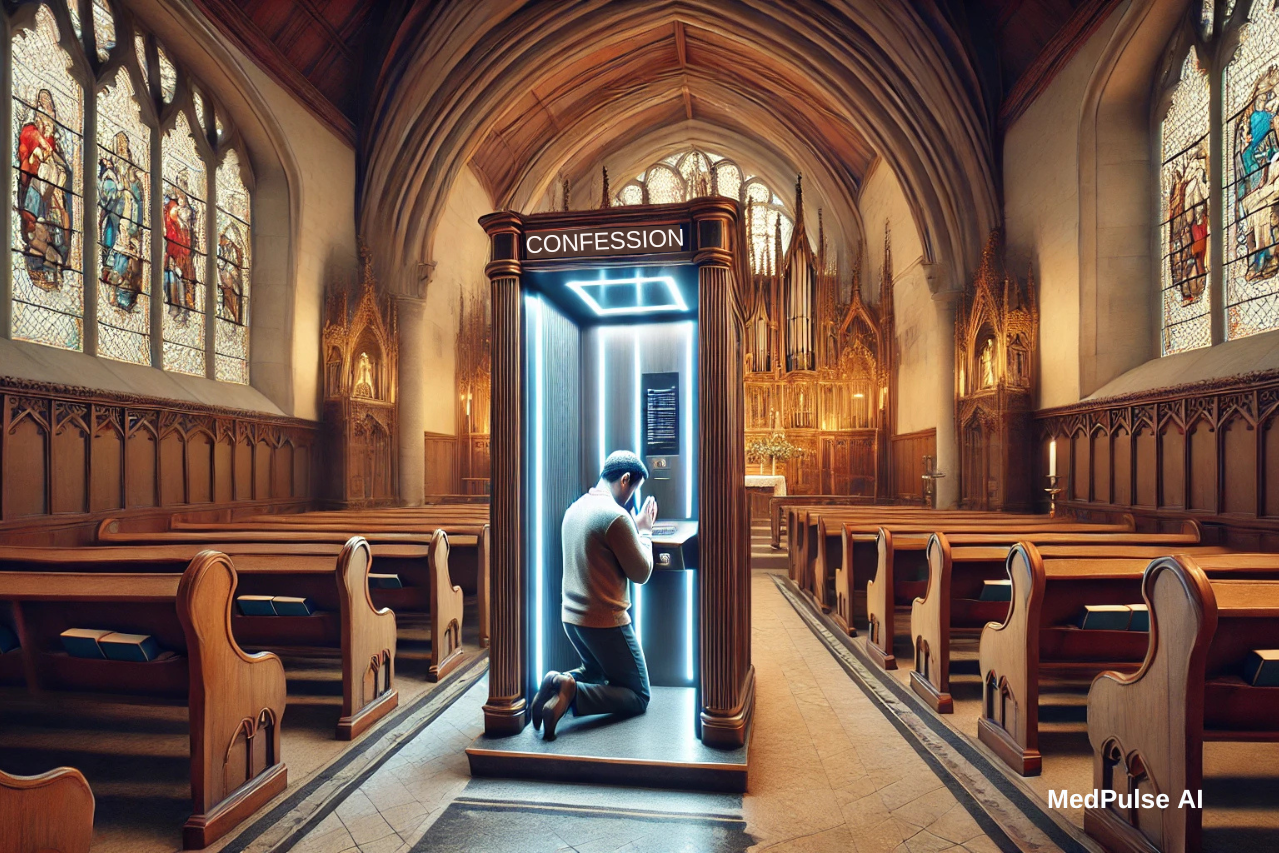A historic 300-year-old church in Switzerland recently conducted a bold experiment that blended centuries-old religious tradition with cutting-edge technology. Over a two-month period, the church replaced a human priest in the confessional booth with a digital representation of Jesus Christ, powered by artificial intelligence. This initiative aimed to explore the potential of AI to provide spiritual guidance in a way that bridges ancient practices with the modern world.
The Concept: How AI Jesus Was Designed
The AI “Jesus” was developed using advanced natural language processing technology and trained on biblical texts, theological writings, and ethical frameworks. In the confessional booth, parishioners encountered a digital screen displaying a serene depiction of Jesus. Through a microphone or a keyboard, they could confess their sins or seek moral guidance, and the AI would respond with scripture-based reflections, tailored advice, or questions meant to encourage personal introspection.
The goal was not to replace traditional confession but to supplement it, especially in a world where church attendance is declining and spiritual guidance is often inaccessible.
The Experience: Reactions from the Faithful
The introduction of AI into this sacred space sparked a wide range of reactions among parishioners and observers:
- Anonymity and Accessibility
Many parishioners found the AI confessional to be a refreshing change. The lack of a human presence allowed them to speak more freely without fear of judgment. For some, the AI’s responses—grounded in scripture and free from personal biases—felt authentic and reassuring. - A Missing Human Element
However, others felt a deep sense of discomfort. Critics argued that a machine, no matter how sophisticated, lacks the empathy and understanding of a human priest. Confession, they argued, is not just about moral guidance but also about connection, compassion, and shared humanity—qualities that AI cannot replicate. - Curiosity and Engagement
The novelty of the AI confessional also attracted younger parishioners and those who had previously felt disconnected from traditional church practices. Many appreciated the experiment as a modern approach to fostering spiritual engagement.
Ethical and Theological Questions Raised
The AI confessional raised profound questions about the role of technology in religious contexts:
- Can AI Mediate Divine Wisdom?
While AI can quote scripture and offer advice based on theological principles, many question whether it can truly embody or convey divine wisdom. Is it possible for an algorithm to channel spirituality, or is this merely an imitation? - What About Empathy?
Human priests offer more than theological knowledge—they bring empathy, understanding, and the ability to navigate complex emotional situations. Can a machine ever fully grasp the nuances of human struggle? - Privacy Concerns
Confession is a deeply private and sacred act. While the church assured participants that the AI system was secure and confidential, concerns linger about the potential misuse of sensitive data in a digital format.
The Mental Health Dimension
Beyond spiritual guidance, the AI confessional booth also opened up discussions about mental health. For many individuals, confession serves as a therapeutic process—a chance to unburden themselves and reflect on their actions. The anonymity provided by the AI system could make it easier for people to discuss sensitive issues without the fear of stigma. Additionally, AI’s consistent, non-judgmental nature could help those struggling with feelings of guilt, shame, or anxiety. While not a replacement for professional therapy, the AI confessional could complement mental health support by encouraging self-reflection and emotional release in a safe, controlled environment.
Broader Implications for Faith and Technology
The experiment reflects a growing trend of using AI in deeply human domains, from mental health counseling to healthcare diagnostics. Religious institutions, often seen as bastions of tradition, are beginning to explore how technology might help them stay relevant and accessible.
For the church, AI could serve as a bridge to younger generations who are more comfortable interacting with technology. It might also offer new ways to engage with those who feel alienated from traditional institutions or live in areas where access to clergy is limited.
A New Chapter in Faith Practice
The Swiss church’s experiment does not claim to replace traditional confession but rather to complement it. It invites us to think critically about how ancient traditions can evolve to meet the challenges of the modern world. Whether AI “Jesus” is seen as an innovation or a disruption, it underscores the power of technology to provoke reflection on how we navigate faith, ethics, and human connection in an increasingly digital age.
Would you seek spiritual advice from an AI? Or does the very idea raise too many questions about authenticity and empathy? This experiment invites us all to ponder how technology can shape the way we practice faith in the 21st century.




